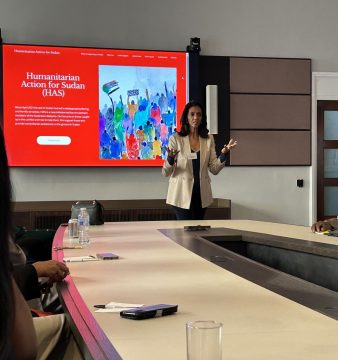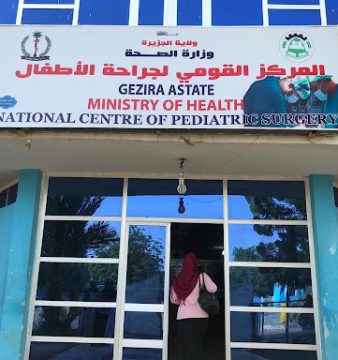Sudan Replaces Ministers and Changes Criminal Laws

Sudan has been undergoing several changes the last week with the country making significant changes to its cabinet as well as its criminal laws.
On 9 July 2020, under the leadership of Prime Minister Abdalla Hamdok, the government announced the replacement of seven ministries and senior cabinet post-holders including the Minister of Foreign Affairs, Asma Mohamed Abdalla; Minister of Finance and Economic Planning, Ibrahim Elbadawi; and Minister of Health, Akram Altoum.
إن عهدنا معكم التقدم بثبات مهما واجهتنا العثرات ولن نقبل بالرجوع إلى الوراء، بل سنمضي قدماً في درب البناء والتعمير، ولتشييد صرح سودان ثورة العزة والكرامة والعدالة والسلام، بناءً قوياً ومتيناً يليق بشعبنا وبتضحياته ومن أجل رخاءه وأمنه واستقراره.
— Abdalla Hamdok (@SudanPMHamdok) July 9, 2020
حفظ الله السودان وشعب السودان
The transitional Sovereign Council was appointed in August and September 2019 after former Sudanese President Omar Al Bashir was ousted on 11 April 2019 along with his regime. As part of a 39-month power-sharing agreement, the council comprises civilian and military members, and will rule the country until democratic elections take place in 2022.
The seven ministries and senior cabinet post-holders have been replaced by caretakers or interim replacements until new ministers are appointed. It has not been officially announced who would replace the Minister of Foreign Affairs, Asma Mohamed Abdalla; and Minister of Health, Akram Altoum. However, the Minister of Finance and Economic Planning, Ibrahim Elbadawi’s interim replacement will be Heba Ahmed Ali, a senior finance ministry official.
أود ان أعبر عن خالص شكري وامتناني للشعب السوداني الذي يعمل جاهداً لإعادة بناء دولة الحرية والكرامة والرفاهية ومنحهم الفرصة لي لأكون أحد المشاركين في وضع لبنات ذلك ، وسعادتي أيضاً بأن تقود الدكتورة هبة محمد علي الملف الاقتصادي خلال هذه المرحلة الحرجة من تاريخ السودان.
— Dr. Ibrahim Elbadawi (@MinElbadawi) July 9, 2020
The Federal Ministry of Health has denied that the Undersecretary of the Ministry of Health, Dr Sarah Abdel-Azim Hassanein, will be replacing Altoum. It also denied the rumours that Altoum has been removed due to his incompetence dealing with the COVID-19 pandemic in Sudan.
وزارة الصحة الإتحادية
— وزارة الصـحة – السـودان (@FMOH_SUDAN) July 12, 2020
إدارة الإعلام والعلاقات العامة
الأحد 12/ 7/ 2020م
تنفي وزارة الصحة الاتحادية ما رشح في وسائل التواصل الاجتماعي منسوبا للسيدة وكيلة وزارة الصحة د. سارة عبدالعظيم حسنين والمكلفة بتصريف أعباء الوزارة ما مفاده.
On 5 July 2020, Hamdok removed Sudan’s police chief Adel Mohamed Ahmed Bashier and his deputy, Osman Mohamed Younis, who were seen as allies of Al Bashir and his regime. has been replaced by Jamal Abdelmajeed.
تم إعفاء الفريق أول شرطة عادل محمد أحمد بشائر من منصب مدير عام قوات الشرطة، و تم تعيين السيد الفريق شرطة عز الدين الشيخ علي مديراً عاماً لقوات الشرطة.
— Abdalla Hamdok (@SudanPMHamdok) July 5, 2020
Currently, there are protests in Sudan, demanding peace, justice and economic stability. In Nertiti in Central Darfur, a mass sit-in has been taking place at the military’s headquarters for nearly two weeks. On 30 June 2020, a Million March took place across Sudan to ensure that the demands of the revolution, which took place in 2019, are met.
Changes in Criminal Law
On 12 June 2020, Sudan announced wide-reaching reforms.
إجازة وتمرير هذه القوانين والتعديلات الجديدة هي خطوة هامة في طريق إصلاح المنظومة العدلية من أجل تحقيق شعار الثورة: حرية سلام وعدالة، عبر قوانين ومؤسسات عدلية تضمن سيادة حكم القانون، ستستمر المراجعات والتعديلات القانونية حتى نكمل معالجة كافة التشوهات في النظم القانونية في السودان. https://t.co/vkHvcsZM4m
— Abdalla Hamdok (@SudanPMHamdok) July 10, 2020
Under the new laws, the following has been reformed:
- The drinking of alcohol has been permitted for Sudanese Christians and other non-Muslims.
- Lashing or public flogging has been forbidden as an official punishment.
- Women are now allowed to travel with their children without the need of a permit from male family members.
- According to the 1991 Criminal Law introduced by the overthrown Omar al-Bashir government, the punishment for apostasy, or the abandonment of Islam through actions or words, was stoning to death. Under the new laws, the death penalty has been repealed.
- Prior to the new reforms, in Sudan, when men and women are in a mixed-space, it is considered that it is likely that they would have premarital sex and could punish individuals for prostitution. The new articles on prostitution punishes individuals if they are found in a place that provides sexual services or is subject to repeated complaints about this.
- In April 2020, Sudan announced plans to criminalise female genital mutaliation (FGM). Under the new law (July 2020), Sudanese government has officially amended the criminal legislation, stating that anyone who performs FGM either inside a medical establishment or elsewhere faces three years of imprisonment and a fine.
According to Sudanese Justice Minister Nasredeen Abdulbari, the government is currently working to reform other laws to incorporate them in a constitutional declaration, including those that are discriminatory provisions against women and children.
Source: Radio Dabanga




